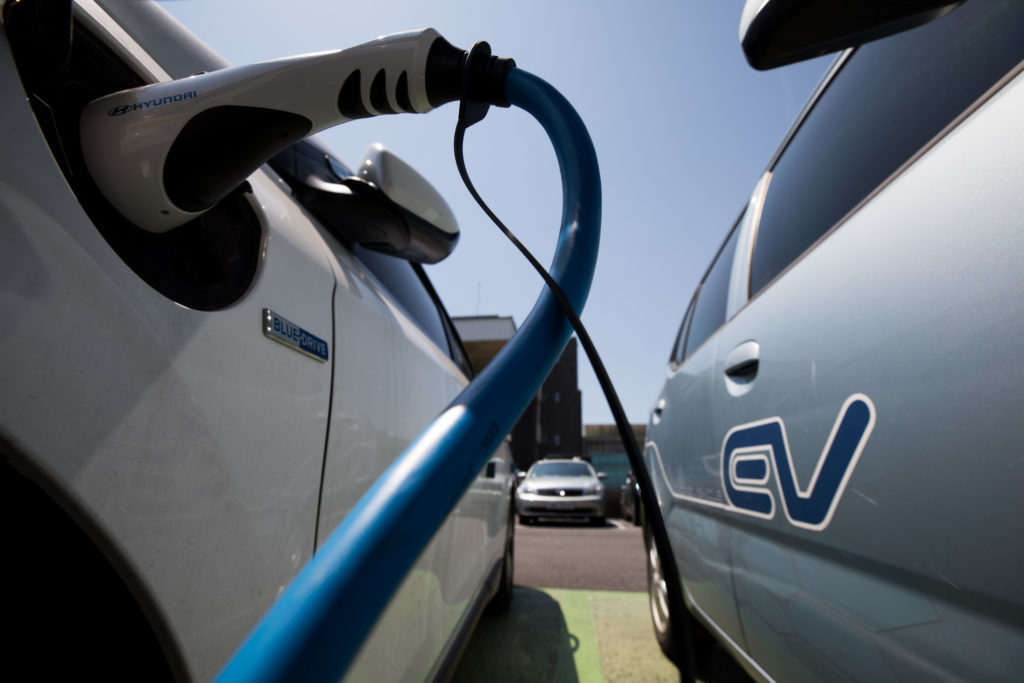
Under plans to tackle air pollution, all sales of new petrol and diesel cars in the UK will cease by 2040. But with electric cars currently accounting for just 1% of new vehicle sales, there will need to be a big gear change in the way we purchase cars before we reach the target.
There are now close to 50 different kinds of electric cars available on the UK market, along with a huge variety of hybrid models.
From how to charge them to how expensive they are, we explore the world of electric cars in 2018.
And with more iconic brands releasing new electric vehicles every year, are these cars finally finding their place alongside conventional motors?
What’s the cost of buying electric?
It’s true, electric and plug-in hybrid cars are generally more expensive to buy new than their conventionally-powered counterparts.
The purchase prices for most hybrid cars are around 20% higher than for their non-hybrid petrol and diesel equivalents, while the same can be said when buying a fully electric car.
But most qualify for interest-free purchase solutions and a government grant that will reduce the overall price, making them a more attractive prospect.Buy a car that emits less than 50g/km of CO2 and can travel a minimum of 70 miles on electric power alone, and there are grants of more than £4,000 up for grabs. Similarly if the car can travel between 10-69 miles on electric power, there are other money-off deals available.
A range of car makers also offer incentives to trade in older diesel cars for newer, cleaner models so it’s worth shopping around if you have a specific car in mind.
How will I charge an electric car?
At the moment there are 2,167 charging points in Scotland which make up 14.8% of all charging points across the UK. It will come as no surprise that the most densely packed areas for points are Edinburgh and Glasgow, but there are 40 points in Aberdeen city alone. There are also various points in more remote locations such as Stornoway, the Cairngorms and Shetland.
Scottish house builder Springfield is also one of the first to begin building brand new homes with electric car charging points included – though it’s likely to be a few years before this becomes standard across all developers.
Installing a home charge point yourself costs about £400 with a government grant, while several manufacturers provide them as part of the sales package.
To reach full charge, an electric car can take as little as 30 minutes or up to 12 hours depending on the size of the battery and the speed of the charging point.
Should I worry about the battery running out?
The newest Renault Zoe, with its bigger battery, now offers a range of about 180 miles from a single charge – more than enough for most users who drive to and from work. Though you might not want to take on a round-trip to Edinburgh just yet.
Iconic electric car maker Tesla offers an even bigger range, some 335 miles on
a full charge. But this comes at a price, being significantly more expensive to purchase in the first place.
While that may not sound much compared to the 400 miles or so that a petrol or diesel car can manage before refuelling, most car journeys in the UK would easily be accomplished in an electric car. Half of journeys are less than five miles, while just 2% are for 50 miles or more.
Of course if you know you rack up the miles on a daily basis, that’s where plug-in hybrids come in, using a petrol engine to
run the vehicle after the electric battery has been emptied.
Are they cheaper in the long run?
The cost of an overnight charge that delivers a typical 100 miles of driving is about £3-£4 depending on your electricity tariff. To go the same distance in a petrol car would typically cost £15 – more if your journeys are all around town.
Other points to consider are that while insurance is generally more expensive, annual servicing is cheaper – £99 a year is about typical. There is no oil to change and any significant problems should be covered by the warranty.
Owners of electric vehicles don’t need to pay road tax, while Londoners in an electric car can already enter the congestion charge zone for free.
Are they really better for climate change than conventional cars?
In short, yes. Electric vehicles emit no pollution at the tailpipe, which means they have a much smaller local environmental impact.
They operate very quietly and are generally extremely easy to drive, with a great deal of power at low speeds.
In the UK, 50% of power is now generated from low carbon sources, and with that share growing rapidly in the next decade, emissions from electric cars will fall too.
Oh, and what will happen to all the petrol stations?
At the moment there are more than 8,000 filling stations across the UK, but their use will be less and less frequent as we approach the 2040 deadline for the sale of new diesel and petrol cars. With the rise of an electrified nation, perhaps they will be converted into high-speed charging sites.
Recommended for you
